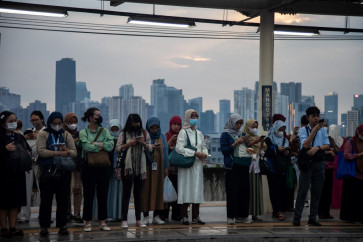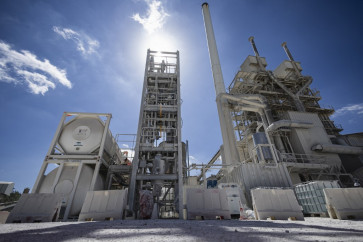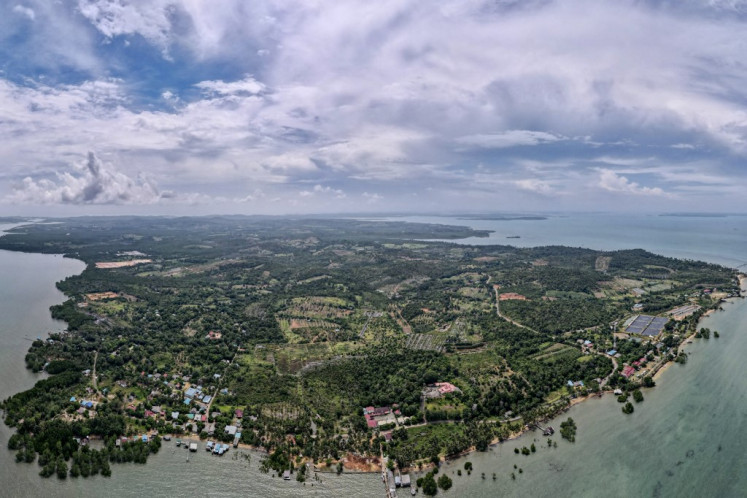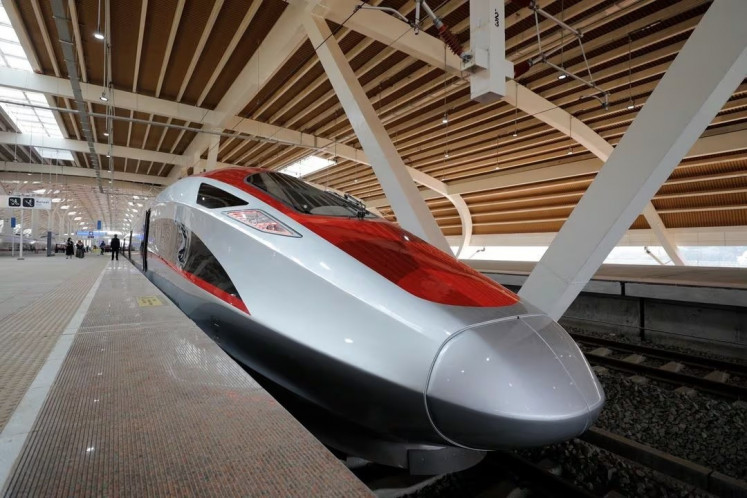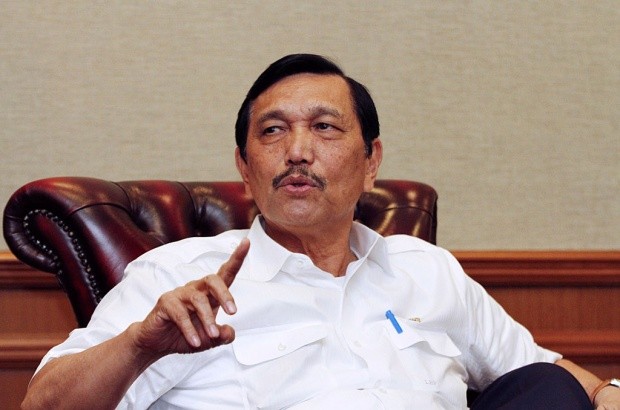Popular Reads
Top Results
Can't find what you're looking for?
View all search resultsPopular Reads
Top Results
Can't find what you're looking for?
View all search resultsExxonMobil sells Aceh assets to Pertamina
ExxonMobil Indonesia, the local division of the US-based ExxonMobil corporation, has sold its assets in Aceh to state oil and gas company Pertamina amid a plunging global oil price that has forced businesses to review their spending
Change text size
Gift Premium Articles
to Anyone
E
xxonMobil Indonesia, the local division of the US-based ExxonMobil corporation, has sold its assets in Aceh to state oil and gas company Pertamina amid a plunging global oil price that has forced businesses to review their spending.
The sharp fall in the oil price has forced ExxonMobil to divest its assets including its 100 percent stake in North Sumatra Offshore (NSO) block, 100 percent interest in B block and 30 percent stake in PT Arun Natural Gas Liquefaction (NGL), which operates the liquefied natural gas plant that has been transformed into a re-gasification terminal.
The take-over, according to Pertamina upstream director Syamsu Alam, has been approved by the regulator.
'Currently, we are working for the transfer and we are aiming to complete all processes in early October,' Syamsu said.
The NSO block and B block used to be the main source for the Arun NGL plant which converts gas into liquefied natural gas (LNG) to be delivered to buyers, mostly overseas.
Both blocks have been depleted and they're no longer able to send a large enough volume to be processed into LNG. The gas leftover in those blocks ' usually known as tail ga ' is still able to be delivered directly to consumers.
Gas in Aceh was discovered by Mobil Oil Indonesia in 1971 and was transported to Arun NGL plant which began exporting LNG to Japan in 1978.
As the gas sources are diminishing, the government decided to overhaul Arun NGL to become a re-gasification terminal that converts LNG coming from fields located in other parts of the country, such as Tangguh in Papua, into gas and then delivers it to customers through a pipeline network.
The overhaul of Arun NGL has been completed and started earlier this year to receive gas from Tangguh.
Pertamina currently holds a 55 percent stake in the plant, ExxonMobil owns 30 percent and a consortium of Japanese buyers holds 15 percent. Thus, following the completion of the take-over, Pertamina will have an 85 percent stake in the Arun plant.
Syamsu said that although the NSO and B blocks had already been depleted, Pertamina still considered the assets as profitable to the company.
'Economical aspects are of course the main basis [of decision] and the amount of gas reserves is one of the parameters to calculate the economic [value] of the assets. However, Pertamina has a comprehensive strategy, not a strategy that is only looking at one aspect of the assets,' he said.
Syamsu declined to reveal the value of the take-over but emphasized that it would not hurt Pertamina's financial condition. 'And by the way, when the oil price drops as we are seeing now, it is actually an ideal time to buy. However, it depends on the strategy of each company,' he added.
Oil and gas companies in the world have been suffering from the plunging oil price, which has been mainly driven by the global oil glut following the US' shale boom. The benchmark West Texas Intermediate (WTI) oil price for October delivery was at US$44.63 per barrel on Saturday, according to figures from Bloomberg. Another benchmark, the Brent crude, was at $48.24 per barrel, dropping by around 3 percent last week. Goldman Sachs Group Inc. said late last week that global surplus could force prices to drop as low as $20 per barrel.
ExxonMobil Indonesia declined to say whether the decision to cease its operations in Aceh was due to the impact of the low oil price and depleted resources that are no longer profitable for the company.
ExxonMobil Indonesia vice president public and government affairs Erwin Maryoto said the company remained committed to Indonesia but continually reviews its assets in line with the firm's 'operating needs and financial objectives'. Along with the divestment, a number of employees will join Pertamina.
'Pertamina will operate the facilities and require a significant proportion of the workforce,' Erwin said.
Following the divestment, the company's key asset in Indonesia will be the Banyu Urip field at Cepu Block. It is expected to ramp up its production to reach a peak of 205,000 barrels per day sometime before the years end. Should the target be achieved, the block will contribute around 25 percent of total national production, which is around 800,000 barrels per day.


